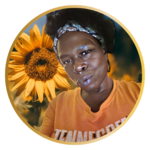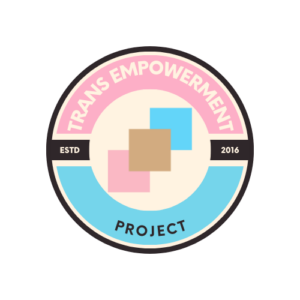In 1827, the English poet, literary critic, philosopher, and theologian Samuel Taylor Coleridge defined poetry as “the best words in the best order.” He further wrote, “When we write, we string words together like beads, ever mindful of color and shape, the powerful nuances of meaning each word conveys.” As a Black Trans poet in the 21st century, I find Coleridge’s assessment to be spot-on. I would add to his definition that poetry is not merely a collection of best words, but it is also personal. I describe it as a soliloquy in reflection: our needs and desires, our wishes, sorrows, and joys written for posterity. It is an emotional testament to our existence.
“the best words in the best order.” He further wrote, “When we write, we string words together like beads, ever mindful of color and shape, the powerful nuances of meaning each word conveys.” As a Black Trans poet in the 21st century, I find Coleridge’s assessment to be spot-on. I would add to his definition that poetry is not merely a collection of best words, but it is also personal. I describe it as a soliloquy in reflection: our needs and desires, our wishes, sorrows, and joys written for posterity. It is an emotional testament to our existence.
Percy Bysshe Shelley wrote that poetry is “the work of a nightingale who sits in darkness and sings to cheer its own solitude with sweet sounds.” I’ve experienced a darkness so profound, the only thing I could see was the sweet song I longed to birth into the world. At one time, blocked from indulging my various curiosities, I turned to verse to hear my own voice. I found that I thrive when sharing my life experiences with whoever has a receptive ear. Thus is the transformative power of poetry.
In celebration of Black Poetry Day, I encourage all to unleash the symphony of our collective voices–to sing and allow joy to thrive in both the seen and unseen spaces of our existence. Shout (if you must) your experience using your best words in their best order, unlocking your profound wisdom, enabling a journey to self-discovery, and uplifting your community through testimony of how it was, how it is, and how it can be.
Several Black poets have shaped me in my own journey. Langston Hughes was the poet, philosopher, and essayist extraordinaire whose genius shone through in his character Jesse B. Semple. Zora Neale Hurston, though not primarily a poet, wrote verse after verse on how to attain self-respect when the door has been slammed in your face. She schooled me on how to get that door answered and open. Black poets have always been philosophers. Their need to share wisdoms gleaned from their experiences gives many–including me–the courage to share their own.
I discovered the tenacious Ntozake Shange and knew instantly that it’s okay to embrace my natural self, even when it comes to having “nappy edges” and an attitude just as unkempt. Then I found the rebellious words of Ai Ogawa, a Black poet and educator who won the 1999 National Book Award for Poetry for Vice: New and Selected Poems. Ai talked unashamedly and courageously about rape, not shying away from the dark and controversial stuff of humanity. She was known for her mastery of the dramatic monologue as a poetic form, “I want to take the narrative ‘persona’ poem as far as I can, and I’ve never been one to do things in halves. All the way or nothing. I won’t abandon that desire,” she said. It’s like she wanted to give a voice to the marginalized, impoverished, and abused, just as we do in our work at Trans Empowerment Project.
On this Black Poetry Day, we at Trans Empowerment Project challenge you to channel your inner poet, recognizing that you are seen and appreciated, and that your value is priceless. Take some time to read some poetry. Write or sing some of your own. There is value and empowerment in your words, not only for yourself, but others. We are committed to supporting and championing you to use your voice in order to foster equity, joy, happiness, peace, and love into your life. Moreover, we dare you to do the same for others.
I Am Not Tragically Coloured
(about Zora)
So the Moon shined in April, a half quarter gleam at your backside Zora. He was as dust tracks on your road, caressing you with His natural endowment
for falsetto grace-hope.
You knew that Ol’ Man Moon – He kept you lit when you were scoring the most beautiful Neale Hurston masterpieces.
Well that Ol’ Man Moon steady hides behind, beyond thee like an unseen strata of cumulous clouds.
He’s demure with songs of lust, his wind still yearning your silver-linings and your unkempt starry nights. Like tornadoes piquing in the eye of ecstasy:
He wants you, your barefaced façade like an eclipse of God… You wrote to him, “Tell my horse.”
I laughed that frosted May. Giggled raucously.
The Moon was full with springtime surprise, but no stars in the garden that night? Where lay those subtle orbs of fire?, their blatant sighs in an atmosphere filled with mocking. Must’ve slyly spied swiss upon my mahogany visage, an unwinked eye? Hooded?
I smiled with you Zora; I kneeled beside the subtle of your blasphemy… I smiled poetry.
I winked it actually, my left eye lazy
and my right shining in jest – I steady smile
the prose of questing for an entire humanity
no longer mired in the muck of Jim Crow, no longer as the mule of young virile men.
From terror to triumph I smile (for we are all vital) And you shine Zora. You shine on.
Butterflies and orchids. Half-rainbows, stars at noon. Wine and green blades – Daffodils of yellow make you swoon.
And the chil’ren in sand boxes: Naïveté amazed. Overalls specked – Slides and swings rathering spirits gay. Shall you comfort on benches like chaise lounge rooms? And fall in gardens: Honeysuckle, Azalia, Hyacinth blooms? Special aroma awaits you. (In the gourd vine of redemption.)
Kittens claw seraph wings and dogs paw like loyalty. Eyes of golden green, a hazel teeming with malice. Defense blows in the wind as claws grasp.
A face in moonlit shadow. A voice beckoning
as rain drizzles in the pallor of an invisible orb. Stars ablaze; clouds rampantly gray: a great man dead… (dust tracks blown in the wind of perseverance; in the midst: reparation)
…and her eyes, they laugh, they’re on the silver-lined, for she could never hold a grudge; grudges rot hearts. Plus she’s naïve-smart, loving child at thirty-one. Her eyes be watching God; They’re hungry
and she’s queer.
Copyright © 2006 Jacquii Cooke

